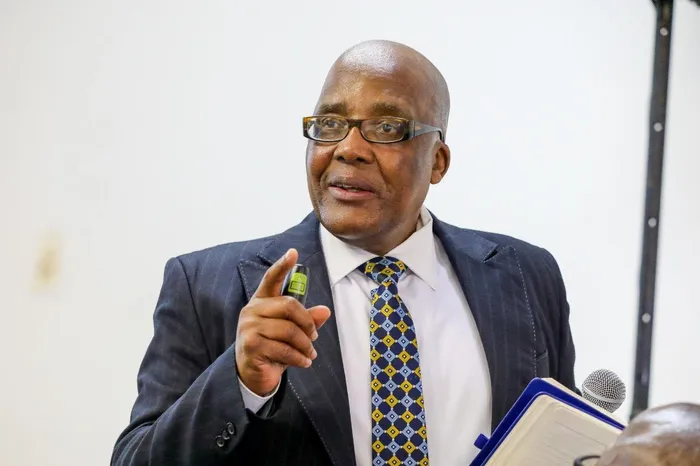Dr Aaron Motsoaledi warns against the financialisation of healthcare

Dr Aaron Motsoaledi warns that the financialisation of healthcare threatens public health and prioritises profit over patient care.
Image: National Department of Health/ Facebook
Health Minister Dr Aaron Motsoaledi has raised the alarm over the 'pervasive financialisation of healthcare', a concept that he argues is transforming health from a fundamental public good into a profit-driven commodity.
Speaking at the Kgalema Motlanthe Foundation Drakensberg Inclusive Growth Forum 2025 at the weekend, Motsoaledi highlighted the shortcomings of current health financing models, not just in South Africa but across the globe, and underscored their dire implications for public health.
Motsoaledi was looking at managing the complexities of the health system and resources.
“The problem is what we call financialisation of healthcare,” Motsoaledi said.
He said there is a growing influence of financial markets, investors and corporate interest in the healthcare sector.
“This phenomenon is transferring health care from a public good, which it is, and a social service into a commodified profit-driven industry prioritising financial returns over people’s health and wellbeing,” Motsoaledi said.
He highlighted that the financialisation of healthcare prioritises profit over health outcomes, disregarding the United Nations’ Sustainable Development Goals. It also neglects pandemic response, such as with Covid-19, and the prevention and promotion of health, especially against rising non-communicable diseases (NCDs) like high blood pressure, diabetes, and cancer.
“The main state of treatment of those is prevention of disease and promotion of health, and yet financialisation disregards those. It unashamedly promotes curative health care as the mainstay of the health care system, not preventative health care,” Motsoaledi said.
Identifying some of the key features of financialisation of health, Motsoaledi said it includes increased private investment in healthcare, but it is not investment for the sake of health, nor is it for the benefit of health.
He said it is profit-driven, decision-making.
Motsoaledi noted that the perils of financialisation include: inequitable access; reduced quality of healthcare; increased healthcare costs; overemphasis on profitable services; undermining of public healthcare; and influence on policy and regulation.
He said that the Organisation for Economic Cooperation and Development (OECD) is thoroughly studying healthcare financing trends and health system financing is being studied by the World Health Organisation (WHO).
“The overall solution, according to the World Health Organisation, is Universal Health Coverage (UHC), which we call NHI in South Africa, which is in court,” Motsoaledi said.
“There are now eight fundamental cases against NHI against universalising healthcare in South Africa. When you count the subcases emerging from that, there are 19 and almost everybody who is in court, (is) defending the fact that health care must be universal and not commodified.”
Motsoaledi highlighted that under the G20 presidency of South Africa, they put the issue of UHC as the number one priority. In November, they will have a G20 health ministers meeting where powerful speakers will deal with this concept 'to save the world'.
He said that African leaders themselves demonstrate a lack of faith in their own healthcare systems, often seeking treatment abroad, particularly in Europe. This phenomenon, driven by financialisation, is an issue that must be confronted directly.
thobeka.ngema@inl.co.za